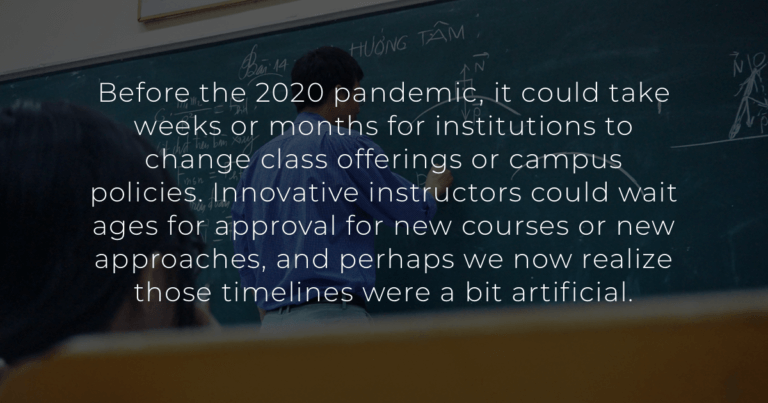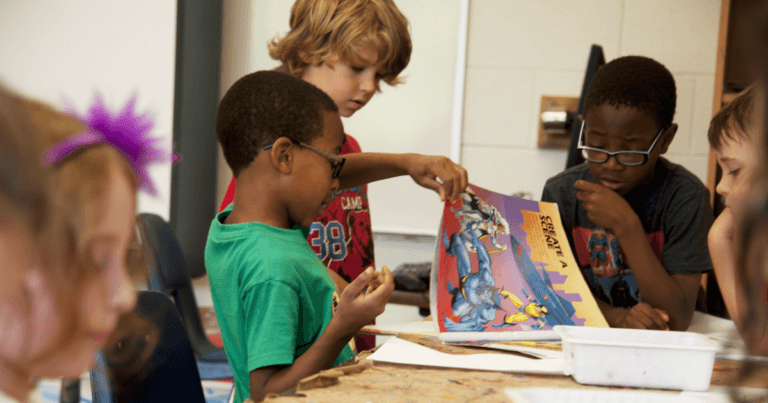The author’s views are entirely his or her own and may not always reflect the views of Reverb.
Some elements of distance learning will be permanent (part of our new normal) going forward.
In particular, populations currently benefiting from distance learning, like rural students and working adult learners, are going to balk when asked to give up remote access to education.
Gaining from distance learning
Adult education institutions gain much from the distance learning model, including reduced cost of delivery and access to a wider range of qualified faculty. These institutions may be loath to give up these newly discovered perks.
I’ll limit my comments to adult education, the area I’ve worked for 20 years. Our situation is a bit different with regards to distance learning as we’re not also taking on the job of socialization and SEL that happens in K-12 education.
Distance learning improves access for students with mobility issues, complex life commitments, and isolated communities. More simply, you don’t have to live in a college town or go to campus for classes, and you can more easily juggle work and family with education.
Once students who are holding down jobs, caring for family members, or struggling with the logistics cost of attending traditional classes realize there’s another way, they will seize this opportunity.
These students, who are not shopping for the college experience of sports, fraternities, and on-campus life, love online classes. I know because I’ve been teaching them for years. They are less concerned about school spirit than they are about the ability to work their assignments around their toddler’s sleep schedule.

Disruption and the current model
Adult education, whether it should have or not, has become more of a business than a mission, and for all but the most competitive schools, online classes make business sense.
True, some subjects do not translate well into a virtual classroom, and I expect courses that require a hands-on component (everything from plumbing and welding to surgery) to remain a face-to-face model. Yet, for other subjects like English, History, Sociology, – and reading, discussion, and writing heavy classes, online delivery is great.
Colleges and universities are not limited to local talent and can find qualified and engaging instructors from all over the world. There are no building and facilities expenses for online courses.
Perhaps another question we might ask is, “What have we realized from the recent forced distance learning experience?” Maybe being pushed to dismantle and reassemble our teaching policies on-the-fly has finally taught educators that pedagogical strategies need to be fluid and responsive. Maybe we’ve realized one size certainly does not fit all.
Before the 2020 pandemic, it could take weeks or months for institutions to change class offerings or campus policies. Innovative instructors could wait ages for approval for new courses or new approaches, and perhaps we now realize those timelines were a bit artificial.
The future
It would be wonderful if the forced move to online learning resulted in society at large, and specifically employers, examining how they evaluate and judge the qualifications of others.
We need a more sophisticated and smarter way to determine if someone has a high-quality education.
The name recognition or ‘cache’ of a school – or whether or not classes were delivered through traditional lectures – in no way indicates the intelligence, skills, or character of graduates.
Distance learning is not new – I can remember the existence of courses where students mailed paper lessons to instructors for grading.
What is new is the worldwide realization that if we want educated citizens, we need to build systems that are multifaceted and adaptable. Part of that adaptation, at least in adult education, is making distance learning a permanent choice.






